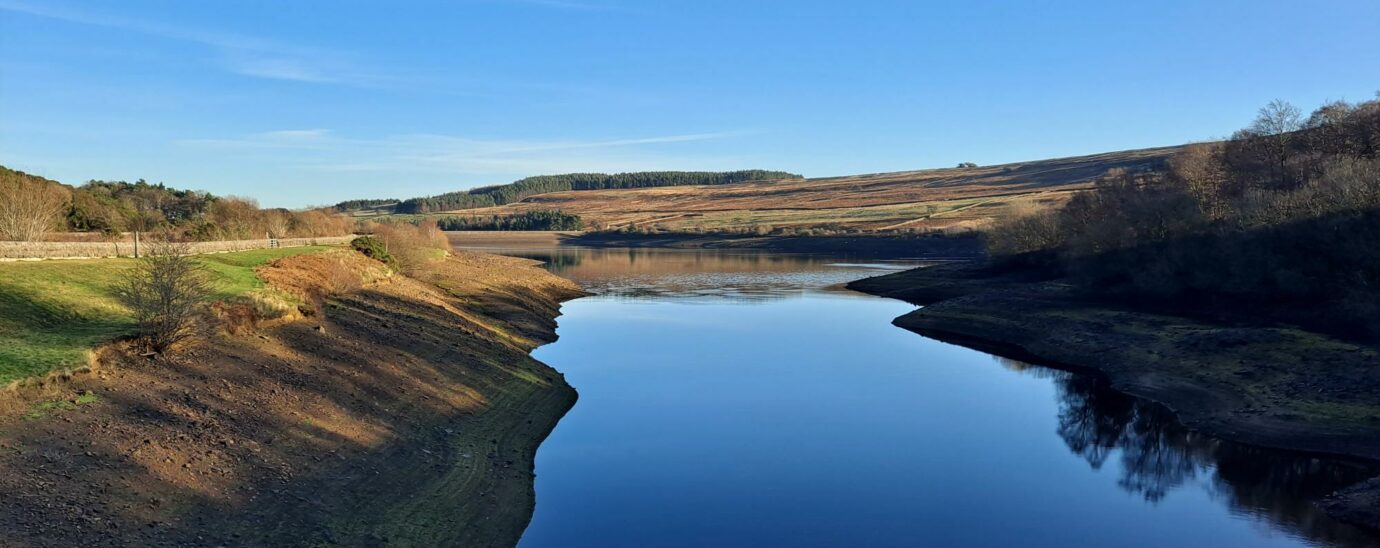How connectivity is enabling smart, sustainable utilities

With many parts of the UK currently recently experiencing scorching temperatures, last year being one of the driest on record and the impacts of climate change weighing heavy on us all, using our water sustainably is more important than ever. In this blog, Ashish Gupta, MD of Corporate & Public Sector at BT, talks about some of the innovations BT and the water industry are developing to meet this challenge.
Water. It’s our most precious natural resource and we all need it to survive.
But, climate change means both flooding and water scarcity have presented huge challenges over the past few years. Whether it’s taking steps to improve the UK’s flood defences or becoming more efficient with the way we use water, one thing is clear: we need to act now to protect our environment and natural resources.
According to the Met Office, last summer was one of the driest on record. And experts are predicting that drought conditions could return this year too. In April, a hosepipe ban was introduced hundreds of thousands of people in the south-west due to the knock-on effect of below-average rainfall last year, and a dry start to 2023.
During periods of drought, water sources such as reservoirs play an important role. They can supply water to our towns and cities and ensure the water keeps flowing, even when there are no raindrops falling from the skies.
So, ensuring they are working at full capacity and as efficiently as possible is a priority for water companies. And connectivity can be a big enabler.
Cutting Carbon in Nidderdale
One example of this is the work we’ve done with long-time BT partner, Yorkshire Water, using connectivity to help the business and the local community of Nidderdale in the Yorkshire Dales.
Nidderdale is a sparsely populated village, around 15 miles north of Harrogate. For many years, Yorkshire Water’s engineers have taken manual readings measuring water quality along the Scar House reservoir. This is costly and time-consuming for the water company and the resources dedicated could be better used elsewhere.
To tackle this problem, we worked with Yorkshire Water to install state-of-the-art IoT (Internet of Things) monitors on water courses feeding the reservoir, to help remotely monitor water quality. A new EE mast installed nearby provides connectivity for these smart sensors to relay data back to Yorkshire Water – where scientists and engineers use it to proactively select the best available water sources for transfer to the treatment works.
A key reason for installing the monitors is for sustainability purposes, which is an area which both our businesses are passionate about. For Yorkshire Water, better insights on water quality can have a knock-on impact on their carbon footprint. For example, by using IoT tech to monitor the temperature, weather, and condition of the moorland effectively, they can understand how much peat is in the water – and select water sources with better quality. The less peat there is in the water, the less treatment it needs. The better quality the water, the less time it will take to process; meaning greater efficiency for Yorkshire Water as it continues to provide great quality water to its customers – as it always has done.
The new IoT setup in Nidderdale is a perfect example of putting our purpose – to connect for good – into practice. And as an added benefit, the EE mast that has been installed is also providing 4G connectivity for around 1,000 local residents, small businesses, and holiday homes.
Using IoT to work smarter in Derbyshire
Another challenge faced by water companies as a result of climate change has been how to manage overflow of wastewater during periods of flooding; the UK experienced 825 raw sewage spills per day in the last year alone (Yorkshire Post, 2022). And AI (Artificial Intelligence) could help. Following our collaborative success in securing funds from the £200m OFWAT Breakthrough Challenge, BT has been working on a UK-first project in Derbyshire, in collaboration with Severn Trent. Essentially, we are working together to transform wastewater catchments by trialling new AI technology that can be used to predict weather conditions, forecast maintenance and most importantly, control waste flow autonomously. This in turn can help water companies prevent flooding and pollution of clean water sources – all through the use of highly secure data transactions.
As part of the trial, the AI technology will be deployed on Severn Trent’s pumping stations– operating independently, using monitors, and providing forecasting. The aim is to see if it can predict issues, such as storm weather conditions, before they occur. In tandem, Severn Trent will automatically have storage ready for any extra water entering the network, diverting it away from overflows and hotspots, and in-turn preventing issues like flooding.
This partnership brings together various partners from the industrial and water sectors, including Southern Water, South West Water, Thames Water, and Hafren Dyfrdwy, alongside global innovators Microsoft, Rockwell Automation, Blackburn Starling, 8power and the University of Exeter.
Managing water at its source in this way is a more cost effective and environmentally friendly approach, and our hope is that it can pave the way for a simple but innovative solution to a growing issue for water companies.
Connecting for good
These recent projects in the water industry are just two examples of how we can use tech to work smarter, benefiting both local people and the environment. After all, the climate pressures on our planet, and our natural resources, weigh heavy on us all: in businesses and communities across the globe. At BT, we believe technology can be a force for good – and that with the right innovation, it can help us play a bigger part in creating a more sustainable world.
To find out more about the innovative technology we are providing to the water industry please visit https://pages.business.bt.com/Utilities.html
